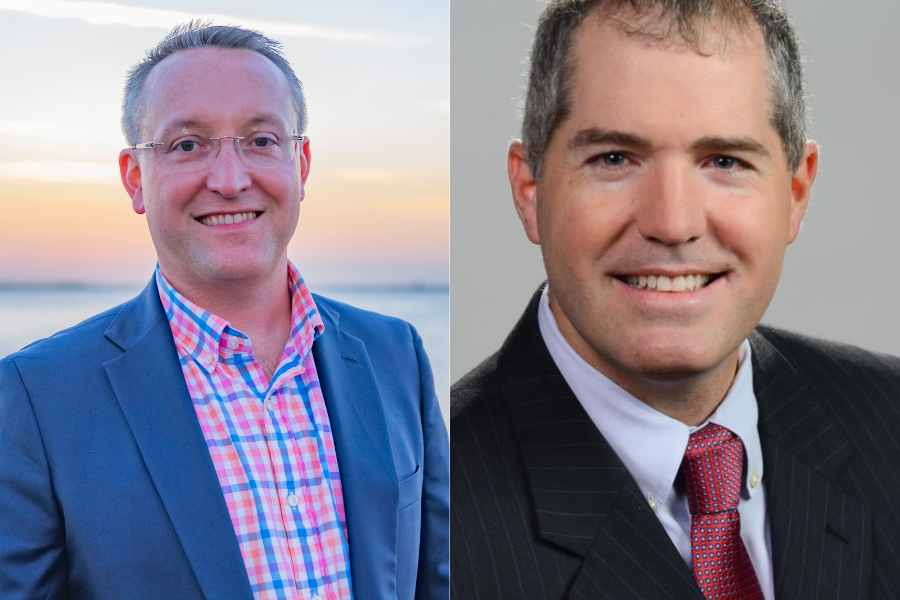Former Treasury Secretary Jack Lew: DOL fiduciary rule has ‘important purpose’
Mr. Lew, who served under the Obama administration from 2013 through the start of 2017, acknowledged the rule has "unintended consequences."
Former Treasury Secretary Jack Lew kicked off the Pershing Insite conference in San Diego on Wednesday afternoon with a nod to the implementation of the Department of Labor’s newly enacted fiduciary rule.
When prompted by the moderator, Mr. Lew said he believes the fiduciary rule “serves an important purpose and I think it will be a benefit.
“I think it was a good decision to let it go into effect (on June 9), because otherwise it would have been another year or two of uncertainty,” added Mr. Lew, who served as Treasury Secretary under the Obama administration from 2013 through the start of 2017.
(More: Pershing’s Tibergien: Beyond the DOL rule, what’s driving industry evolution?)
Mr. Lew acknowledged some of the “unintended consequences” of the rule, including potentially “pricing smaller investors out of the financial advice market.”
But, he added, I think most people who provide financial advice will feel comfortable with the rule.”
Mr. Lew, who also served as director of the Office of Management and Budget under Presidents Bill Clinton and Barrack Obama, never mentioned President Donald J. Trump by name during the nearly two hours he was on stage, but made a few references to the new president’s policies.
“In the U.S., if I had my druthers, we would invest heavily in infrastructure and turn the corner on education and training,” he said. “We don’t have a macroeconomic need for a tax cut right now to create fiscal stimulus. Quite the contrary; right now we have an economy at risk of overheating.”
While Mr. Lew said he is “not nervous about an economically driven shock to the U.S. or global economy,” he confessed that “I see more geopolitical risk now than I’ve seen at any time in my career.”
“The uncertainty the U.S. is creating is something nobody could have predicted even a year ago,” he added. “The world depends on the U.S. for leadership. But once you’ve introduced uncertainty, you don’t know what your (global) partners will do.”
(More: American politics is No. 1 ‘hot topic’ with clients: survey)
Circling back to the financial markets, Mr. Lew cited the sense of investor optimism, as reflected by a measurement of market volatility.
“Look at the vix; it’s as calm as ever, as if it has no sense that geopolitical risks are happening,” he said, speculating that the geopolitical risks are not being priced in to the stock market because low interest rates are forcing more investors into equities.”
Mr. Lew also talked about the nail-biting days at the start of President Obama’s first term in early 2009 when the state of the financial markets were so dynamic.
“You had to start each day by erasing your notes from the previous day,” he said. “But I remember even then, I was still getting questions (globally) about how the U.S. could have done that to the rest of the world. But as they saw our recovery working, the questions shifted to asking what the secret of the U.S. was.”
During Mr. Lew’s second hour on stage he was joined by two other panelists, one of whom was critical of the Obama administration’s Dodd-Frank Wall Street Reform and Consumer Protection Act.
Brian Wesbury, chief economist at First Trust Portfolios, argued that the government was able to pass new regulations by placing most of the blame for the 2008 financial crisis on Wall Street.
“It’s not the whole story that Wall Street caused the financial crisis and the government saved the economy,” Mr. Wesbury said. “Fannie Mae and Freddie Mac owned 76% of the subprime debt and lied about it. Even the Fed didn’t know how much was owned. Treating the people in this room as if we caused the crisis is wrong. The government has never admitted its role. Not once.”
The moderator was intent on keeping the discussion civil, even though the audience of financial professionals was loudly applauding Mr. Wesbury’s challenge.
For his part, Mr. Lew added that, “I have a very different view on Dodd-Frank. There are things you could do on the margins to fine tune things, but rolling back Dodd-Frank would cause uncertainty.”
(More: Trump administration wants to rewrite Dodd-Frank regulations)
Learn more about reprints and licensing for this article.








